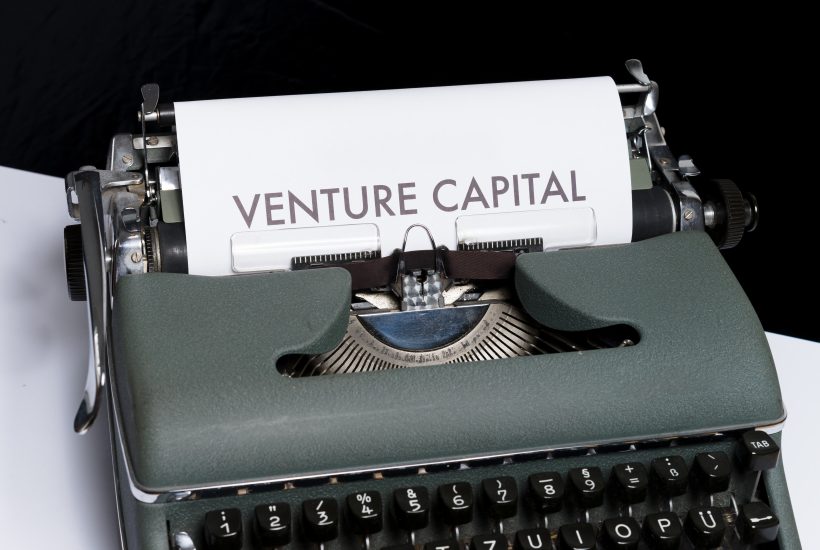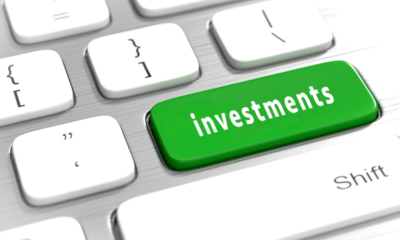Africa
Why Venture Capital Investments in Africa Increased
The increase in capital venture investment is largely due to startups raising larger amounts to expand on the African continent organically or through acquisitions. Two concrete examples are Kenya-based e-commerce company Wasoko, which raised $125 million to enter Côte d’Ivoire and Senegal, and Kenyan solar fintech M-Kopa, which raised $75 million to develop its activities in Ghana and Nigeria.

Startups are still popular in Africa. At least that’s what the figures for venture capital investments on the continent show. They reached $3.5 billion during the first six months of the year, an increase of 133% compared to the same period a year earlier, according to a report published on September 29 by the African Private Equity and Venture Capital Association (AVCA). A total of 445 investments were made in 300 companies and, notably, 27% of them are led by women or have a woman in a senior position. “The African venture capital ecosystem has shown upward trends despite rampant inflation and an unfavorable macroeconomic climate. While the global venture capital market has experienced significant contractions to varying degrees across regions, the African ecosystem has achieved its best performance ever,” the experts said.
In any case, this performance “demonstrates the depth of opportunity as well as the potential that the continent has to offer,” they pointed out. “It is also the result of a concerted effort by African governments in recent years to nurture dynamic and supportive ecosystems, allowing entrepreneurship and investment to flourish,” the report’s authors also pointed out, citing the example of Tanzania and its Silicon Zanzibar platform, which offers work visas and tax incentives to technology companies that set up shop there.
Read more on the subject and find the latest economic news from around the world with the Born2Invest mobile app.
An African venture capital ecosystem
Significantly, the increase in investment is largely due to startups raising larger amounts to expand on the African continent organically or through acquisitions. Two concrete examples are Kenya-based e-commerce company Wasoko, which raised $125 million to enter Côte d’Ivoire and Senegal, and Kenyan solar fintech M-Kopa, which raised $75 million to develop its activities in Ghana and Nigeria.
A total of $4.7 billion in startup deals were closed on the continent during the period, driven by a significant amount of new capital raised by fund managers in 2021, growing interest in Africa’s venture capital ecosystem, and overall larger entry sizes.
In terms of volume, West Africa accounts for the largest share of deals, led by the Nigerian giant, which totaled nearly 100 deals. Next is East Africa, which recorded the largest growth in deal volume over the previous year. North Africa (20%), Southern Africa (14%), and Central Africa (1%) close the rankings.
Beyond fintech, edtech, and cleantech
Among the sectors attracting investors, finance holds the top spot. Fintech startups continued to attract the majority of investment flows, accounting for 89% of deals in the financial sector. But other sectors, such as healthcare and education, are emerging, particularly in response to the Covid-19 pandemic. “The number of healthcare deals in the first half of the year showed a gradual development compared to last year, accounting for a total of 7% of the cumulative volume of transactions recorded in early 2022. Nevertheless, it remains a growing sector to watch.” By way of background, two startups have pulled off real stunts: Ghanaian cancer research and diagnostics startup Yemaachi Biotech received a $3 million round of funding; U.S.-based BluePeak Private Capital put $15 million into Africure, a pan-African generic drug maker.
Yet it is cleantech that is on a roll, having risen five places to become the second most active vertical among startups that have successfully raised funds in the first half of 2022. Cleantech refers to companies that operate or develop technology to improve environmental sustainability or reduce the environmental impact caused by human activities. “African entrepreneurs are increasingly motivated to provide innovative, efficient and sustainable solutions or to address pressing socio-environmental challenges.” These include notable deals such as the $19 million Series C round in sanitation and waste startup Sanergy in Kenya.
Venture capital still has a lot to live up to
If current trends continue, fundraising in the region will reach $7 billion this year, 35% more than the $5.2 billion raised in 2021, AVCA said. “In addition to Africa’s immunity to date to the global decline in the financing, economic growth forecasts for sub-Saharan Africa also suggest a relatively positive outlook for the second half of the year,” the AVCA said.
However, there are several indications that transactions on the continent will slow down next year. In particular, private equity fundraising fell by 20 percent in the first half of 2022 to $700 million, according to the report. The decline reflects “a more difficult and competitive fundraising environment for fund managers globally and fears of a global economic slowdown,” the AVCA said. Note that Africa accounts for just 1% of global venture capital funding in the first half of 2022.
__
(Featured image by Markus Winkler via Unsplash)
DISCLAIMER: This article was written by a third party contributor and does not reflect the opinion of Born2Invest, its management, staff or its associates. Please review our disclaimer for more information.
This article may include forward-looking statements. These forward-looking statements generally are identified by the words “believe,” “project,” “estimate,” “become,” “plan,” “will,” and similar expressions. These forward-looking statements involve known and unknown risks as well as uncertainties, including those discussed in the following cautionary statements and elsewhere in this article and on this site. Although the Company may believe that its expectations are based on reasonable assumptions, the actual results that the Company may achieve may differ materially from any forward-looking statements, which reflect the opinions of the management of the Company only as of the date hereof. Additionally, please make sure to read these important disclosures.
First published in Le Point Afrique, a third-party contributor translated and adapted the article from the original. In case of discrepancy, the original will prevail.
Although we made reasonable efforts to provide accurate translations, some parts may be incorrect. Born2Invest assumes no responsibility for errors, omissions or ambiguities in the translations provided on this website. Any person or entity relying on translated content does so at their own risk. Born2Invest is not responsible for losses caused by such reliance on the accuracy or reliability of translated information. If you wish to report an error or inaccuracy in the translation, we encourage you to contact us.

-

 Business4 days ago
Business4 days agoHow Small Businesses Play A Role In The Future Of AI Investments
-

 Markets2 weeks ago
Markets2 weeks agoWhy Coffee Prices Increased Last Week
-

 Crypto8 hours ago
Crypto8 hours agoThai Government to Make One of the First National Crypto Airdrops in History
-

 Crypto1 week ago
Crypto1 week agoHow Trump’s Possible Return to the White House Will Affect the Crypto Market
























